Poll: Across Dozens Of U.S. Metros, Voters Want Bold Mayoral Action
New polling shows that voters across dozens of major U.S. metros recognize the broad reach of mayoral power—and demand bold, progressive change.

In a nation with over half a million elected officials, the spotlight rarely shifts away from 537 individuals who work under the Capitol Dome or in the White House. The nationalization of U.S. politics has distorted a foundational civic reality: the vast majority of public policy decisions are made in localities, where city and county policymakers wield substantial power. As attention remains fixated on congressional action (or the lack thereof) with each passing crisis, mayors and city councils consider potentially transformative proposals within earshot of homes, neighborhoods, and workplaces.
But a new poll from Data for Progress and the Lab, a policy vertical of The Appeal, shows that voters across dozens of major U.S. metros recognize the broad reach of mayoral power—and demand that mayors use it for bold, progressive change.
To learn more about what Americans want from their local mayor, and the policy vision voters have for where they live and work, we surveyed likely voters across the 40 largest cities in the United States. We found that, beyond the trope of addressing potholes and parades, voters want mayors to take strong action on the evictions crisis (81 percent), police misconduct (89 percent), homelessness (82 percent), unsolved homicides (88 percent), drug overdose prevention (85 percent), and affordable public transit (76 percent), among other issues.
As roughly a third of the 100 largest U.S. cities—from New York to Omaha to Anchorage—decide mayor’s races 2021, the poll shows consistent demand for transformative solutions in public health and safety, economic stability, and government transparency and accountability.
Some of the results include:
Public Health & Safety
- 82 percent of voters—including 88 percent of Democrats, 80 percent of independents, and 66 percent of Republicans—support their city creating a community-based program to train community leaders to de-escalate potentially violent situations.
- 75 percent of voters—including 84 percent of Democrats, 70 percent of independents, and 52 percent of Republicans—support creation of a new agency of treatment professionals and experts charged with responding to emergency calls instead of a police officer when a person has overdosed.
- 67 percent of voters support their city reallocating money from its law enforcement budget to fund a community-based violence interruption program, and an equal proportion would likewise reallocate police funds for a new agency that would allow trained clinicians rather than cops to respond to 911 calls involving substance abuse or mental health crises.
- 76 percent of voters—including 84 percent of Democrats, 72 percent of independents, and 57 percent of Republicans—support creation of overdose prevention centers in their city.
- 75 percent of voters—including 81 percent of Democrats, 74 percent of independents, and 53 percent of Republicans—support creating a new agency of first responders, like emergency medical services or firefighters, without police involvement to deal with issues related to substance use or mental illness that require a response.
- 60 percent of voters support their city removing traffic enforcement from police and creating a division of traffic safety within state or local departments of transportation whose employees would enforce traffic laws rather than the police
- 60 percent of voters—including 67 percent of Democrats and 52 percent of independents—support replacing armed police officers stationed in public transport hubs such as subways and bus stops with civilian enforcement officers and experts trained to address mental health, homelessness, and substance use crises.
- 59 percent of voters support police no longer making arrests or issuing citations in instances when adults pay for consensual sex so that law enforcement can prioritize violent and other serious crimes
Housing
- 81 percent of voters—including 87 percent of Democrats, 73 percent of independents, and 70 percent of Republicans—support a right to counsel for evictions proceedings.
- 79 percent of voters—including 88 percent of Democrats, 70 percent of independents, and 61 percent of Republicans—support their city purchasing under-utilized hotels and other unoccupied buildings to house people experiencing homelessness.
- 71 percent of voters—including 78 percent of Democrats, 70 percent of independents, and 51 percent of Republicans—support banning evictions for the duration of the pandemic.
- 66 percent of voters—including 72 percent of Democrats, 54 percent of independents, and 62 percent of Republicans—support a temporary ban on clearing out homeless encampments during the pandemic.
Economic Stability
- 80 percent of voters—including 86 percent of Democrats, 74 percent of independents, and 64 percent of Republicans—would back a measure that provides direct cash payments between $500 and $1,000 to people who recently lost their jobs. A majority of voters would support making such payments to other vulnerable groups as well, including people living at or below poverty level (74 percent), former foster care youth (66 percent), and those returning home from a prison sentence (52 percent).
- 67 percent of voters—including 75 percent of Democrats and 62 percent of independents—support making public transportation free.
Government Transparency & Accountability
- 78 percent of voters—including 82 percent of Democrats, 75 percent of independents, and 63 percent of Republicans—support their city making police officer misconduct records accessible to the public.
- 75 percent of voters—including 80 percent of Democrats, 71 percent of independents, and 62 percent of Republicans—support making the contracts cities reach with police unions publically available.
- 73 percent of voters—including 81 percent of Democrats, 68 percent of independents, and 46 percent of Republicans—support their city creating police oversight commissions made up of civilians that have the power to review police actions, issue subpoenas, and impose disciplinary actions.
- 67 percent of voters—including 73 percent of Democrats, 64 percent of independents, and 52 percent of Republicans—support their city making police union contract negotiations open to the public.
- Asked whether politicians should accept or decline campaign donations from police unions and industries that profit from mass incarceration, a majority of voters said candidates should decline donations from the private prison industry (63 percent), local police unions (56 percent), national police unions (56 percent), the bail bond industry (58 percent), the probation industry (58 percent), weapons manufacturers that sell equipment to police departments (61 percent), and police union political action committees (57 percent).
Full Poll Results and Analysis
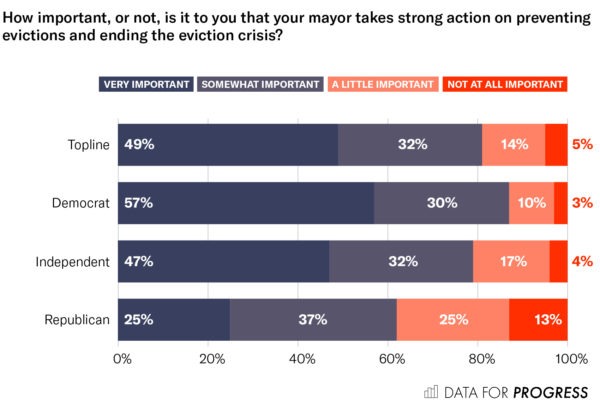

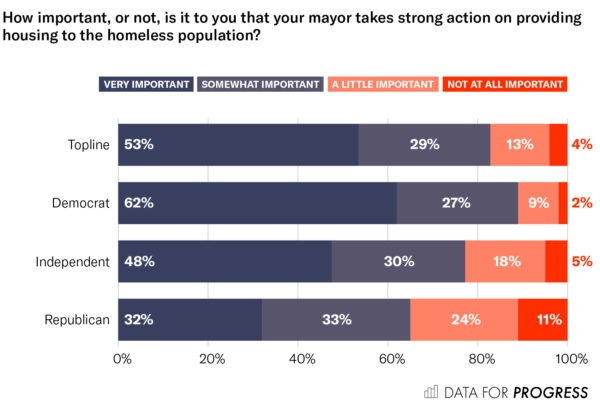
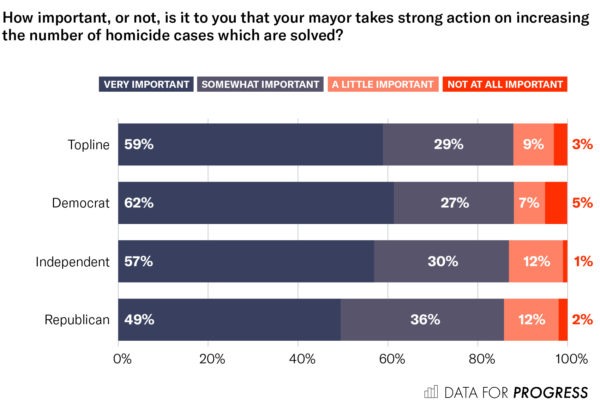
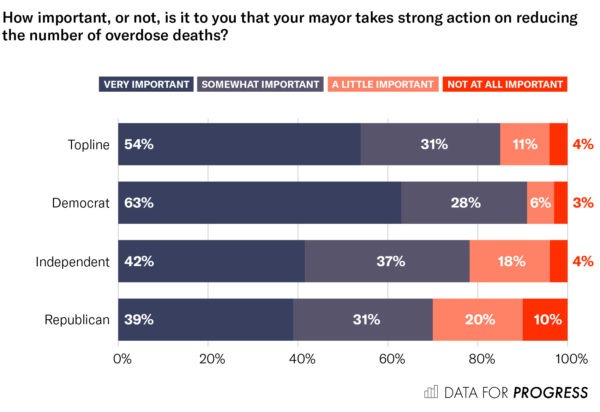
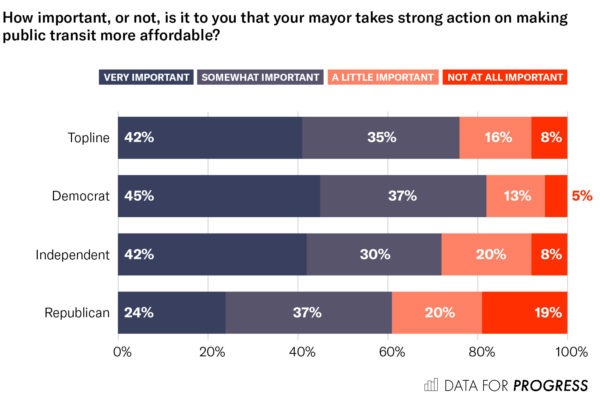
Public Health and Safety
Municipalities across the U.S. are reimagining public safety and the role of policing, recognizing that during emergencies and moments of crisis many people need clinical and social support, and that encounters with armed officers only make things worse. This approach to safety views issues like homelessness, substance use disorder, and mental illness as public health challenges that cannot be solved with, and are often worsened by, arrests and incarceration. A cornerstone of this approach is non-police emergency response. These programs divert certain 9-11 calls to trained clinicians and social workers rather than armed police to assist people struggling with homelessness or addiction, and connect them with wrap-around services and resources, such as overdose prevention centers. Other cities have considered or implemented community-based violence interruption programs that train local leaders to de-escalate and disrupt violent situations before they happen. Research shows that such programs are better at reducing gun violence than traditional policing. Finally, advocates have pressured elected officials and candidates for office to decriminalize consensual sex work, rather than enforce a harsh, morality-based regime of arrests and fines on often vulnerable people trying to earn a living.
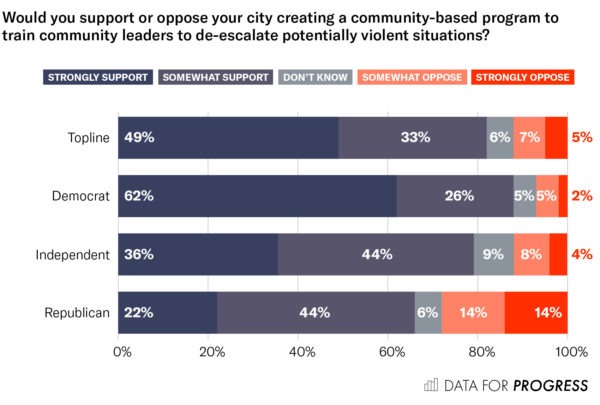
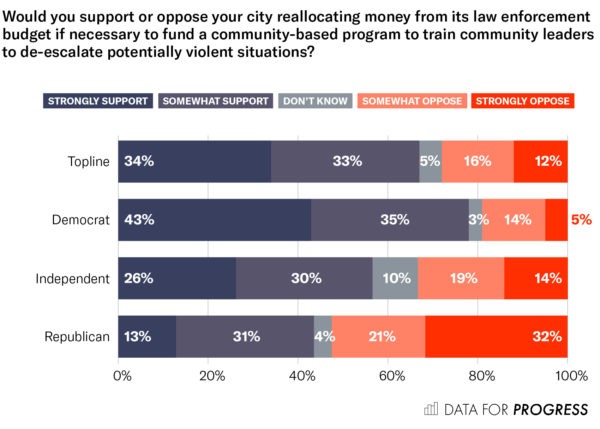
Some mayors are proposing creating overdose prevention centers. These centers would exist to bring drug users who may not have homes inside, and to create safe spaces for people who are still using drugs and may not be ready for treatment. These centers would be designed to prevent people from dying and to link them to community support.
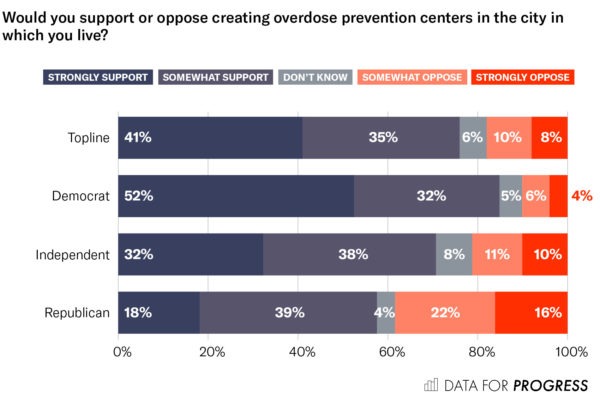
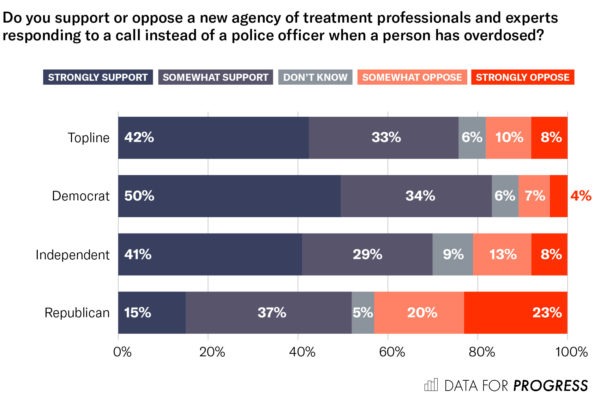
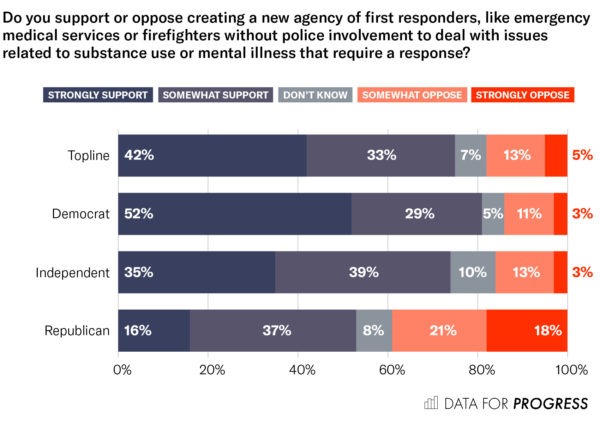
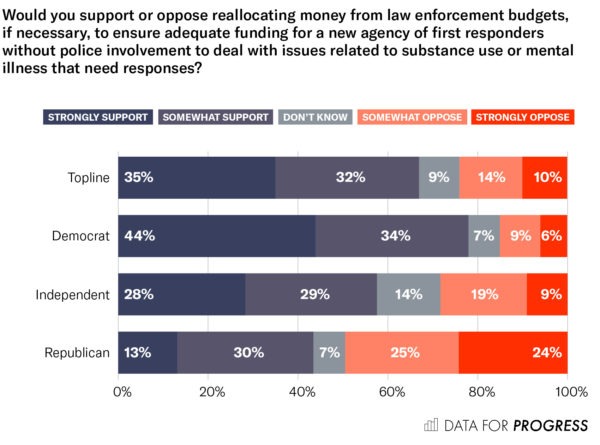
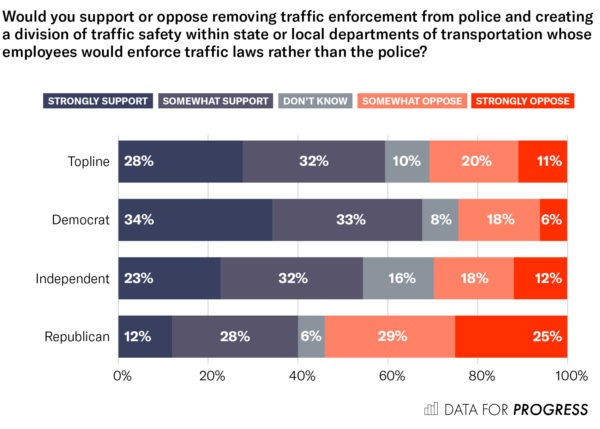
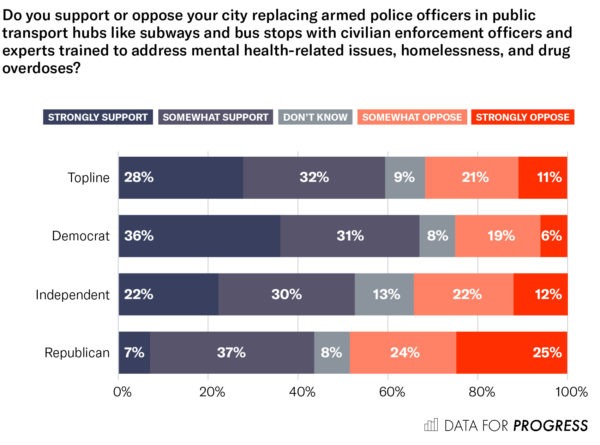
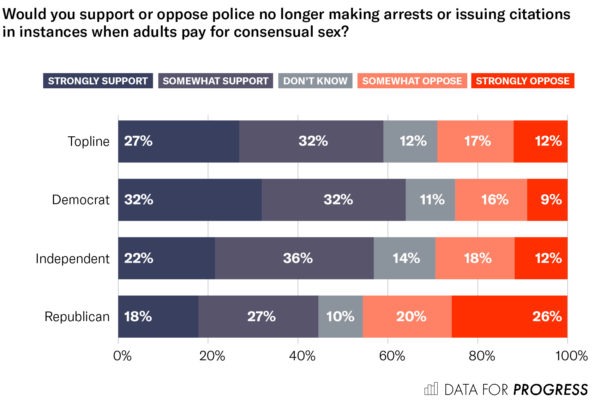
Housing
The COVID-19 pandemic forced lawmakers to contend with a longstanding evictions crisis that threatens millions with severe instability or homelessness every year. Between 2000 and 2016 alone, there were over 60 million eviction filings in the U.S., and millions more have little confidence in their ability to pay rent. As housing costs have soared, with housing insecure people forced to pay up to half of their income on rent, the spotlight has shifted onto a civil legal system that overwhelmingly favors landlords. One proposed reform to protect tenants is to guarantee a right to counsel for evictions proceedings, similar to that which exists in criminal proceedings. In city after city, research shows that tenants who are represented by counsel have a much better chance at keeping their homes. The pandemic has also ramped up pressure on local officials to curb policies that criminalize homelessness, such as clearing out encampments, and instead invest in more stable and cost-effective housing solutions such as purchasing vacant buildings to house people experiencing homelessness.
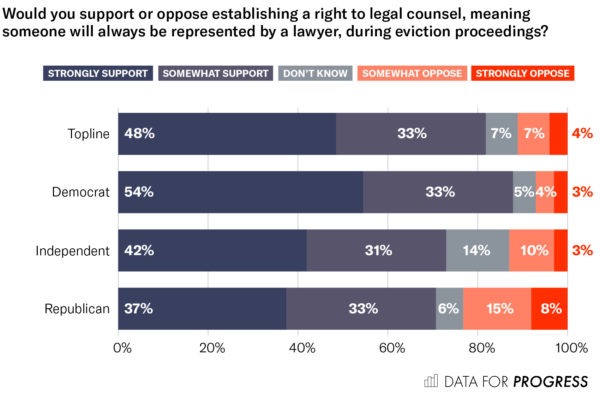
Certain cities have purchased under-utilized hotels and other unoccupied buildings to address the needs of people experiencing homelessness. These cities think that housing homeless people together allows them to consolidate support services, save money, and creates better outcomes for both people experiencing homelessness and their communities.
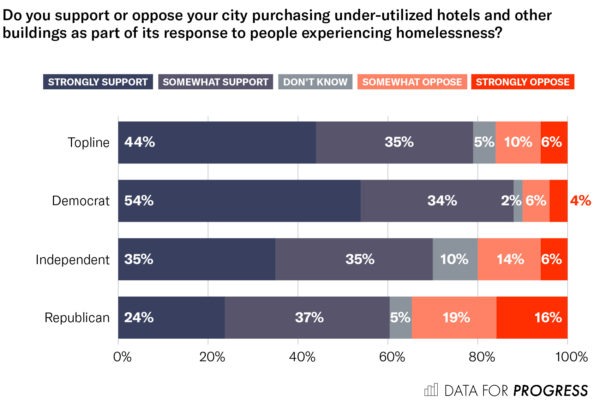
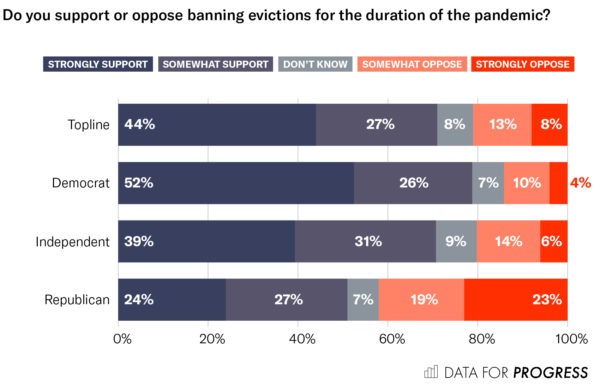
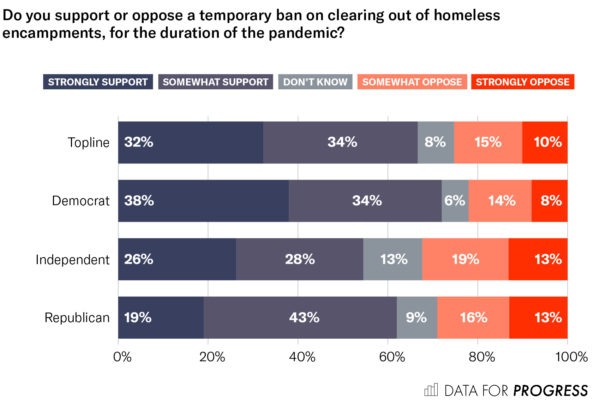
Economic Stability
With millions of people falling through the cracks of federal and state safety net programs, momentum has grown for local solutions to provide vulnerable residents with needed economic support. One such proposal is a guaranteed income program, in which cities provide monthly cash payments to their most at-risk residents. These populations, such as those returning from a prison sentence, face extraordinary barriers to finding and securing employment. Other groups might include former foster care youth, and those experiencing poverty or who have recently lost a job. Proponents argue that cash payments ultimately pay for themselves, as those with stable housing and employment pay into the economy and government coffers, whereas homelessness and incarceration come with exorbitant fiscal and ethical costs to a society. Finally, as low-income people are more likely to rely on public goods, advocates have pushed for free public transit (such as buses and trains) to offset the historically high cost of living in many cities.
Many mayors have publicly signed onto a coalition called Mayors for a Guaranteed Income. The group supports direct cash payments to certain vulnerable people to ensure economic stability. Experts believe that economic stability for vulnerable populations during times of transition will decrease the risk of individuals becoming homeless, incarcerated, and other harmful outcomes for both individuals and their communities. Below is a list of different groups of people. For each, say whether you would support or oppose providing them with between $500 and $1000 in monthly payments, depending on their specific need.
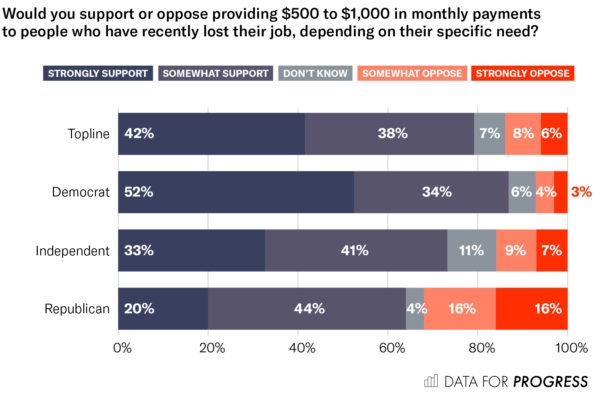

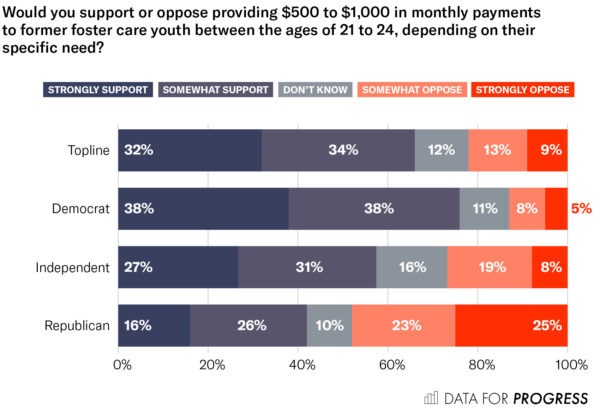
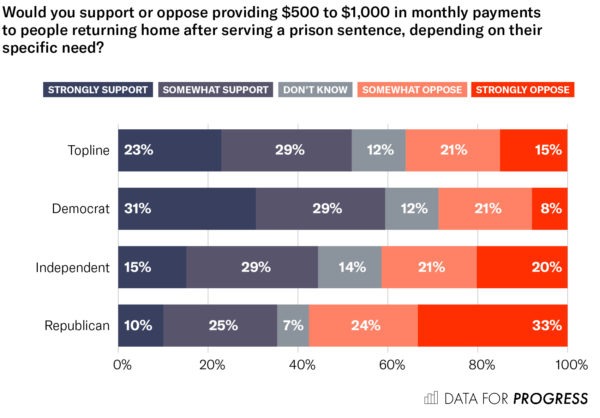
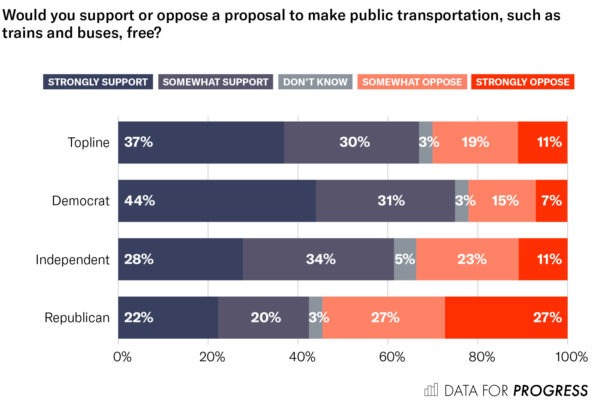
Government Transparency and Accountability
In light of a nationwide policing crisis, many are asking why law enforcement agencies often operate behind a veil of secrecy, despite being funded and operated by the public. Whereas other government agencies often abide by stringent rules around transparency and public disclosures, police departments routinely make critical decisions about personnel and public safety without the public’s knowledge or participation. The contracts police unions reach with cities, for example, are often undisclosed. Similarly, officer misconduct records are frequently kept private, allowing officers with histories of violence, abuse, or other wrongdoing to continue policing increasingly distrustful residents. Some advocates believe that public trust and meaningful accountability depend on politicians refusing political donations from various stakeholders in law enforcement, from police unions to weapons manufacturers that sell equipment to police departments, to eliminate a conflict of interest.
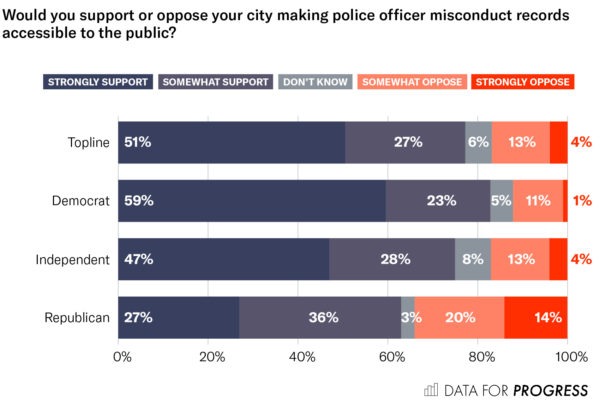
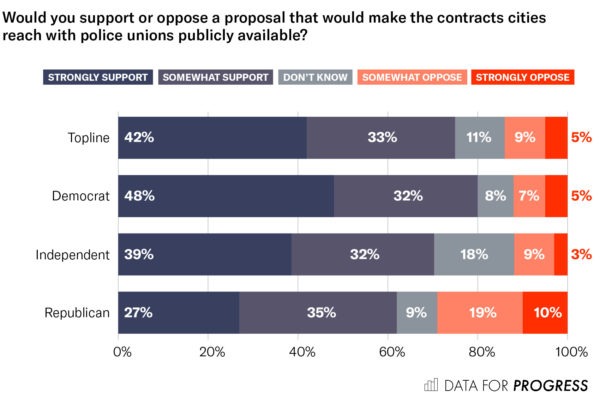
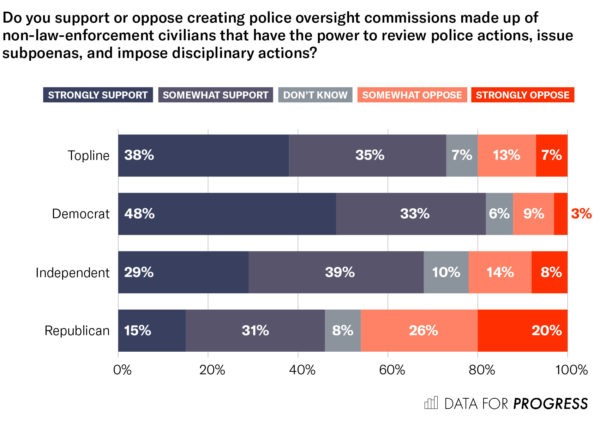
Some lawmakers are proposing policies that would open police union contracts and negotiations to the public. This would mean that negotiations over salaries, workplace conditions, and disciplinary measures would be public and open to community observation and participation, instead of taking place behind closed doors. Lawmakers argue that these policies would allow the community to hold the city and police unions accountable, especially in how they determine disciplinary measures.
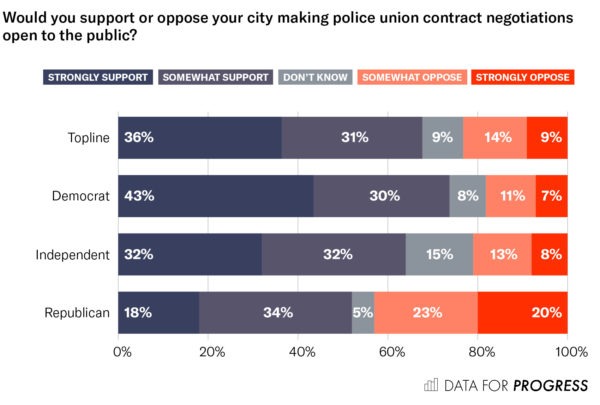
National advocacy groups, such as Color of Change, are asking candidates for office at all levels of government to reject contributions from police unions. These advocates argue that accepting these donations creates a conflict of interest for candidates running for office and that if they accept this money they will be less likely to pursue reform to policing practices that this country needs. A related problem is the donations of private companies that profit from mass incarceration, such as private prisons, weapons manufacturers, and the probation and bail bonds industries. The money these groups give to candidates again creates a conflict of interest for the candidates that receive it. Below is a list of political organizations. For each, say where or not you think politicians should decline or accept donations from these groups.

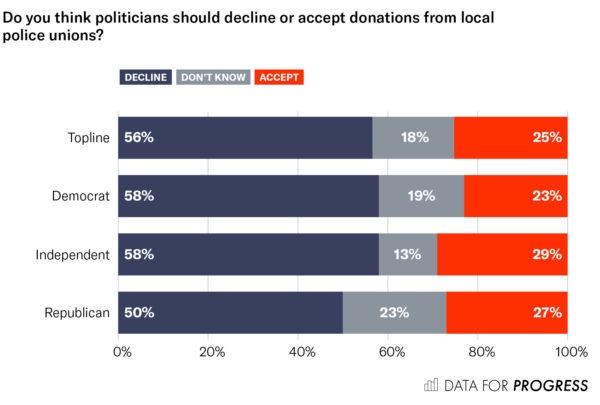
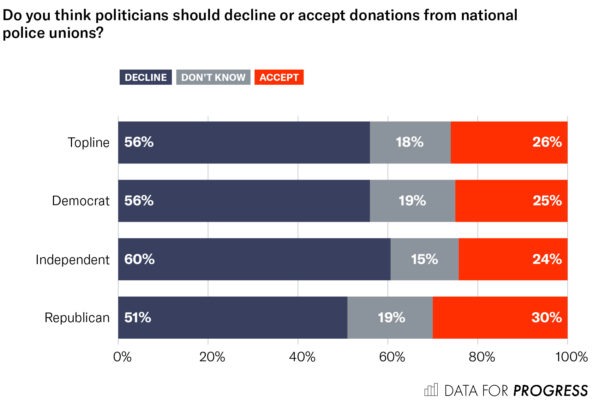
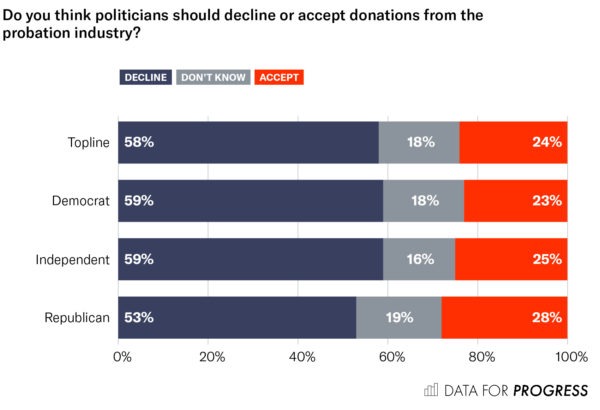
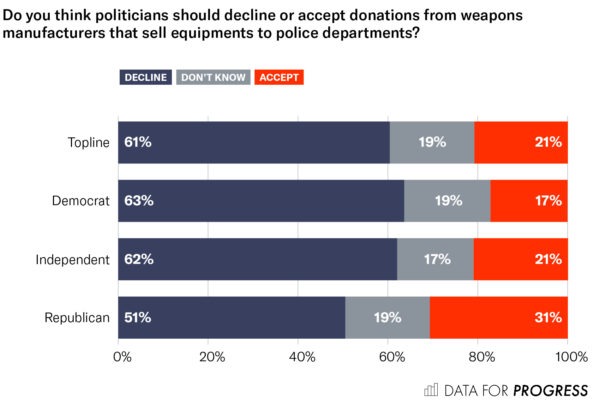
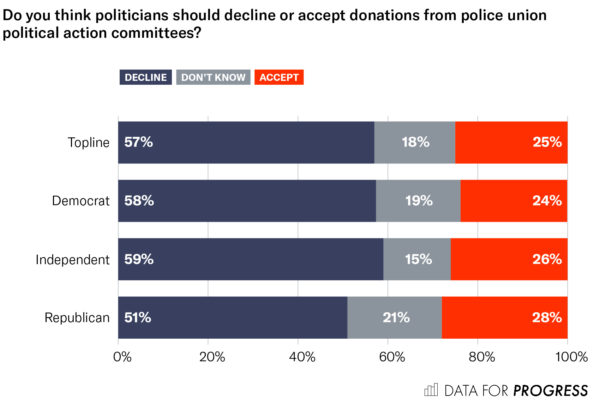
Polling Methodology
From March 29 to April 1, 2021, Data for Progress conducted a survey of 1041 likely voters in large metro areas across the United States using web panel respondents. The sample was weighted to be representative of likely voters by age, gender, education, race, and voting history. The survey was conducted in English. The margin of error is ±3 percentage points.
The poll surveyed likely voters in and around Phoenix; Los Angeles; San Diego; San Francisco; San Jose, CA; Denver; Washington, D.C.; Jacksonville, FL; Miami; Atlanta; Chicago; Indianapolis; Louisville, KY; Boston; Baltimore; Detroit; Minneapolis; St. Paul, MN; Kansas City, MO; St. Louis; Charlotte, NC; Raleigh, NC; Omaha, NE; Albuquerque, NM; Las Vegas; New York; Columbus, OH; Oklahoma City; Portland, OR; Philadelphia; Memphis, TN; Nashville, TN; Austin, TX; Dallas; El Paso, TX; Fort Worth, TX; Houston; San Antonio; Seattle; and Milwaukee.

